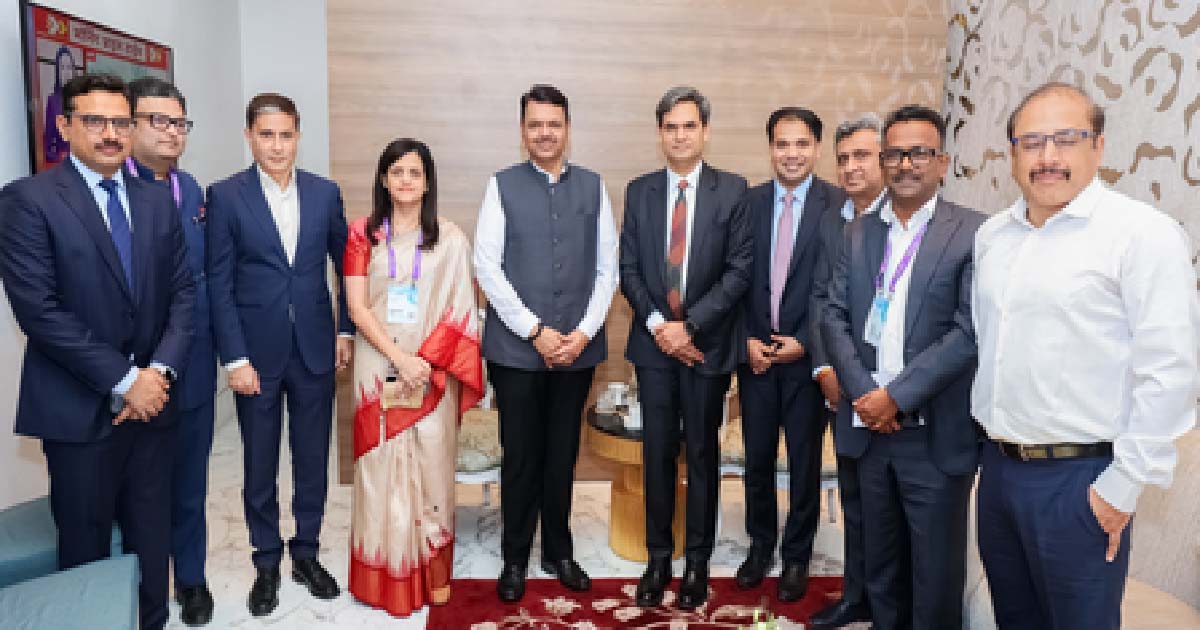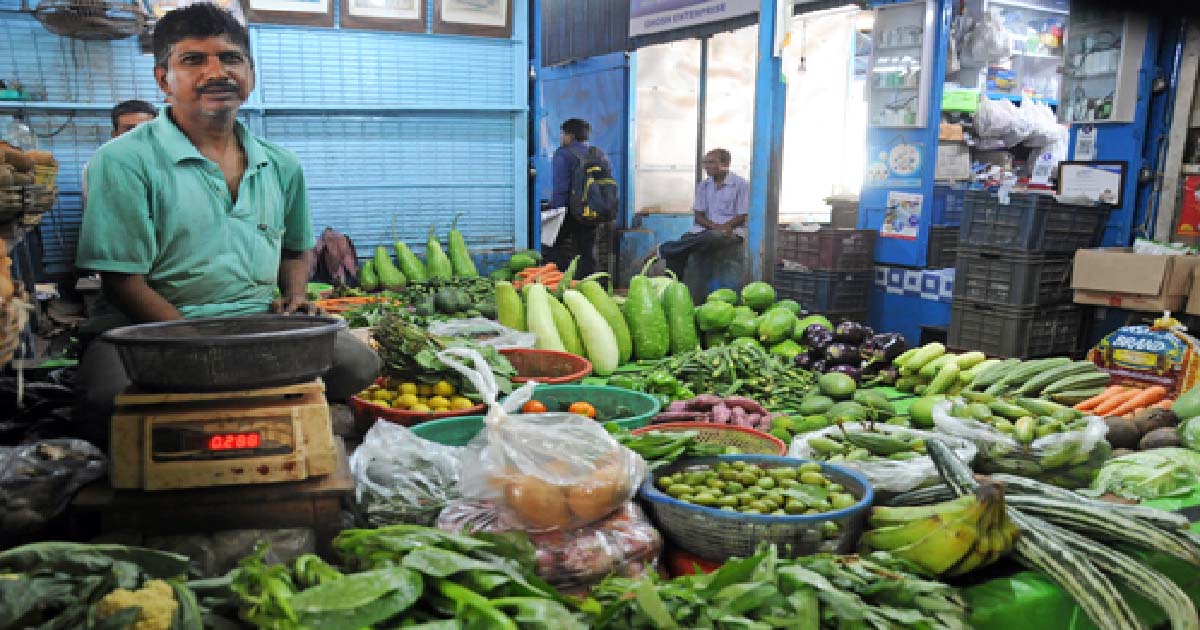Business
Biocon Q4 results: Consolidated revenue growth recorded at Rs 2,476 Cr, up by 21%

Biocon registered total revenues at Rs 2,476 crore for the Quarter 4 of the financial year 2022. It also recorded net profit for the period at Rs 239 crore, as per the official statement released on Thursday late night.
During the year-ago period, the Bengaluru-based biopharma giant reported a net profit of Rs 253 crore on revenue of Rs 2,048 crore.
The company recorded a decline of 6 per cent compared to Q4 of last year and 12 per cent decline in comparison with the financial year 2021. The 2021 net profit stood at Rs 740 crore. The figures for 2022 stood at Rs 648 crore, as per the official statement.
The company stated that former HSBC India Chairperson Naina Lal Kidwai has been appointed as Additional Director on the Board of Biocon Ltd.
Commenting on the results, Kiran Mazumdar-Shaw, Executive Chairperson, Biocon and Biocon Biologics, said: “FY22 was a transformational year for Biocon. Key strategic moves in our Biosimilars business position us for long-term growth and value creation for our stakeholders.
“We believe that the two strategic transactions, with Viatris and Serum Institute Life Sciences, will position Biocon Biologics as a world leading, unique, fully integrated biologics company with a strong differentiated portfolio of biosimilars and vaccines.
“We reported a strong consolidated revenue growth of 21 per cent for Q4FY22 at Rs 2,476 crore driven by 48 per cent growth in Biosimilars, 26 per cent in Generics and 15 per cent in Research Services businesses.
“Our Gross R and D spends increased by 70 per cent this quarter to Rs 232 crore reflecting our advancing pipeline that will drive our future growth. Core EBITDA was up by 37 per cent at Rs 815 crore, representing healthy operating margins of 33 per cent. PBT before Exceptional Items stood at Rs 384 crore, up by 9 per cent.
On a full- year basis, we delivered consolidated revenue of US$ 1.1 billion (Rs 8,397 crore) and reported a Core EBITDA growth of 18 per cent at Rs 2,669 crore with core EBITDA margins at 32 per cent,” she explained.
Commenting on the performance, Dr Arun Chandavarkar, Managing Director, Biocon Biologics Ltd. said: “The 48 per cent (Y-o-Y) growth in revenues this quarter was a result of improved performance across developed and emerging markets, driven by strong market share gains of our interchangeable Glargine in the US. The health of our operational and business performance is reflected in the Core EBITDA margins being 39 per cent of revenues and growing 78 per cent Y-o-Y.
“We have progressed well in the development of several next wave biosimilar programmes, with two of our molecules entering the clinic. Whilst net R and D was at 9 per cent of revenues in FY22, we expect this to ramp up in FY23 commensurate with the progress of our rich and diverse pipeline which provides Biocon Biologics a sustainable growth opportunity in the years ahead.
The two strategic transactions with Serum and Viatris announced in FY22, upon likely closure in the second half of calendar year 2022, will propel us on our path to be a leading vertically integrated biosimilars company globally and will also support the higher investments in developing our pipeline,” he said.
Commenting on the Generics segment performance, Siddharth Mittal, CEO and Managing Director, Biocon Limited, said, “The business saw robust sequential as well as YoY growth in Q4, on the back of contributions from new product launches in the US, particularly Everolimus, an uptick in our API business and a normalisation of supply challenges that impacted us in the first half of the fiscal.
“However, our FY22 performance was muted, largely due to supply and operational challenges earlier in the year, as well as headwinds in the form of pricing pressures, and escalating costs of solvents, raw material and logistics.
“As we progress on our mission of providing high quality affordable medicines to patients around the globe, we will continue to focus on expediting our product pipeline, operationalising new capacities, and accelerating projects that drive cost and operational efficiencies across the organization.
“We will also commence work on important new projects in the current fiscal – a large scale synthetic facility in Hyderabad and an injectable facility in Bangalore; as well as expand our fermentation capacities in Bangalore, all of which will provide further impetus to our future growth.”
Jonathan Hunt, CEO & Managing Director, Syngene said: “I am pleased with the strong finish we had to the year and that we delivered results at the high end of our upgraded guidance range.
“Reflecting on the last two years of the pandemic, I am extremely proud of our track record: we created more than 2000 new jobs – more than in any other two-year period of the company’s history – and gained more than 100 new clients in the last year. We also extended and expanded our long-term partnership with Amgen Inc. and continued to invest in new capacity and technology to underpin future growth.
“Looking ahead, we see growing demand for research, development and manufacturing services around the world and we are well-positioned to take advantage of these new opportunities.”
Business
Indian stock market ends in bullish tone over hopes of renewed FII inflows

Mumbai, Dec 13: Indian equity benchmarks made marginal losses during the week amid sustained FII outflows and uncertainty surrounding the US-India trade negotiations.
However, the market ended the week in a bullish tone with Nifty surging 0.57 per cent on the last trading day after the US Federal Reserve announced a 25-bps rate cut.
Benchmark indices Nifty and Sensex dipped 0.36 and 0.17 per cent during the week to close at 26,046 and 85,267, respectively.
Indian equities opened the week on a subdued note, amid continued rupee depreciation and negative global cues due to rising Japanese bond yields.
The US Fed rate cut later in the week eased liquidity concerns and fuelled hopes of renewed FII inflows. With supportive central bank policies, steady domestic investments, and optimism over trade progress despite unclear timelines, benchmarks closed the week on a strong note.
India’s year-on-year inflation rate based on the Consumer Price Index (CPI) was estimated at 0.71 per cent for November this year which was marginally higher than the 0.25 per cent in October, according to figures released by the Ministry of Statistics.
Broader indices underperformed, with the Nifty Midcap100 and Smallcap100 down 0.51 per cent and 0.67 per cent, respectively, in a week.
Sectoral performance was mixed, with IT under pressure while PSU banks, real estate and consumer durables witnessed selective buying.
Hrishikesh Yedve, AVP Technical and Derivative Research, Asit C. Mehta Investment Interrmediates, said that Nifty’s weekly chart shows buying interest at lower levels.
Nifty has 26,200 and 26,325 as stiff resistance levels while 25,700 will act as support zone, he added.
Analysts said that markets will likely remain positive in near future but sensitive to rupee stability, FII flow trends, trade agreement clarity, and cues from major central banks abroad.
Amidst risks from currency fluctuations and global trade uncertainties, improving earnings visibility and liquidity support provide a constructive backdrop and downside protection, they added.
Business
Maharashtra on path to becoming GCC hub: CM Fadnavis

Nagpur, Dec 12: Chief Minister Devendra Fadnavis on Friday announced that a crucial milestone has been achieved in the journey to establish Maharashtra as a GCC (Global Capability Centre) Hub.
He said that the Brookfield company is set to build Asia’s largest Global Capability Centre (GCC) in Mumbai, spanning approximately 2 million square feet.
The Chief Minister said that this project is expected to generate a total of 45,000 jobs, including 15,000 direct and 30,000 indirect jobs.
He stated that due to the state’s talent pool, infrastructure, and industry-friendly environment, Maharashtra is becoming a preferred destination for Global Capability Centres.
“The new GCC policy will lead to large-scale skill-based job creation and economic growth,” he added.
He also mentioned that FedEx, a global leader in the logistics sector, is keen to invest in its GCC and other operations near the Mumbai-Navi Mumbai airport area, said the government release.
The Chief Minister informed that he requested Microsoft to consider Maharashtra for their investments, noting that their largest existing investment is already in the state.
He expressed confidence that Microsoft will make a major investment in the future and take the lead in making Maharashtra an Artificial Intelligence (AI) centre.
The Chief Minister said that Maharashtra’s model for crime control with the help of Artificial Intelligence is a guiding light for the entire country.
Chief Minister Fadnavis confirmed that Microsoft has assured priority to Maharashtra in their largest ever investment in India, amounting to $17 billion.
He further highlighted the ‘Marble’ platform developed by Maharashtra, which helps detect cyber and financial crimes in just 24 hours instead of 3-4 months.
He said that this has resulted in saving people’s money and has expedited the process of tracking criminals.
Business
India’s CPI inflation estimated at 0.71 pc for Nov, food inflation stays in negative zone

New Delhi, Dec 12: India’s year-on-year inflation rate, based on the Consumer Price Index (CPI), was estimated at 0.71 per cent for November this year which was marginally higher than the 0.25 per cent in October, according to figures released by the Ministry of Statistics on Friday.
Food inflation stayed in the negative zone during November at (-) 3.91 per cent as prices of food goods fell compared to the same month of the previous year. Food inflation has now stayed negative for the sixth month in a row, easing the burden on household budgets.
However, the increase in headline inflation during November 2025 is mainly attributed to an increase in the inflation of vegetables, eggs, meat and fish, spices, and fuels compared to October, according to an official statement.
The retail inflation had eased further in October, after having plummeted to an over 8-year low of 1.54 per cent in September, as prices of food items and goods across sectors fell during the month.
The declining trend in food prices continued in October as food inflation fell deeper in the negative zone at (-) 5.02 per cent from (-) 2.28 per cent in September.
However, the overall outlook for inflation remains benign.
The RBI’s monetary policy committee (MPC) last week slashed its forecast for India’s inflation rate for the financial year 2025-26 to 2 per cent from 2.6 per cent predicted in October due to the sharp decline in food prices and the GST rate cuts playing out.
RBI Governor Sanjay Malhotra announced a reduction in the repo rate by 25 basis points to 5.25 per cent from 5.5 per cent earlier, as inflation had come down and the monetary policy could focus on boosting growth.
Malhotra said that the surge in economic growth to 8.2 per cent in the second quarter of the current financial year and the sharp decline in inflation to 1.7 per cent had provided a rare “Goldilocks period” for the Indian economy.
“The MPC noted that headline inflation has eased significantly and is likely to be softer than the earlier projections, primarily on account of the exceptionally benign food prices. Reflecting these favourable conditions, the projections for average headline inflation in 2025-26 and Q1:2026-27 have been further revised downwards.”
Malhotra also pointed out that core inflation (which excludes food and fuel) remained largely contained in September-October, despite continued price pressures exerted by precious metals. Excluding gold, core inflation moderated to 2.6 per cent in October. Overall, the decline in inflation has become more generalised, he added.
The RBI Governor observed that food supply prospects have improved on the back of higher kharif production, healthy rabi sowing, adequate reservoir levels and conducive soil moisture. Barring some metals, international commodity prices are likely to moderate going forward.
-

 Crime3 years ago
Crime3 years agoClass 10 student jumps to death in Jaipur
-

 Maharashtra1 year ago
Maharashtra1 year agoMumbai Local Train Update: Central Railway’s New Timetable Comes Into Effect; Check Full List Of Revised Timings & Stations
-

 Maharashtra1 year ago
Maharashtra1 year agoMumbai To Go Toll-Free Tonight! Maharashtra Govt Announces Complete Toll Waiver For Light Motor Vehicles At All 5 Entry Points Of City
-

 Maharashtra1 year ago
Maharashtra1 year agoFalse photo of Imtiaz Jaleel’s rally, exposing the fooling conspiracy
-

 National News1 year ago
National News1 year agoMinistry of Railways rolls out Special Drive 4.0 with focus on digitisation, cleanliness, inclusiveness and grievance redressal
-

 Maharashtra1 year ago
Maharashtra1 year agoMaharashtra Elections 2024: Mumbai Metro & BEST Services Extended Till Midnight On Voting Day
-

 National News1 year ago
National News1 year agoJ&K: 4 Jawans Killed, 28 Injured After Bus Carrying BSF Personnel For Poll Duty Falls Into Gorge In Budgam; Terrifying Visuals Surface
-

 Crime1 year ago
Crime1 year agoBaba Siddique Murder: Mumbai Police Unable To Get Lawrence Bishnoi Custody Due To Home Ministry Order, Says Report












